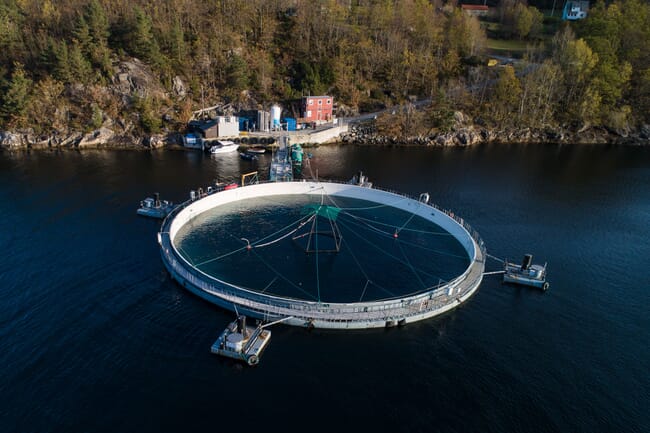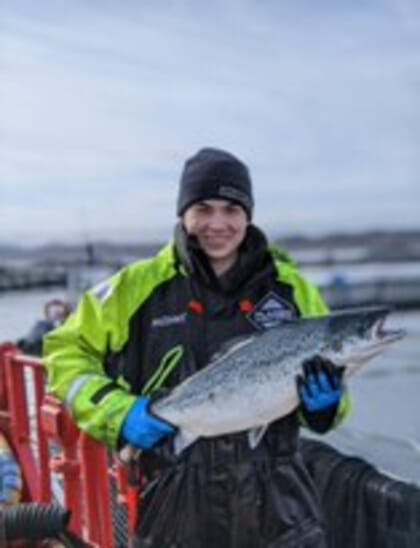
© Mowi
Called Neptune tanks, the solid structures, built by Aquafarm Equipment, enable fish farmers to better control water inputs and outputs, thereby avoiding intake of potentially harmful phytoplankton and sea lice and eliminating interactions of farm-raised and wild fish.
Measuring 40 metres in diameter, the tanks – which have been trialled in Norway – will be used to grow salmon from 120 to 800 grams before on-growing in net pens. It is estimated that they will reduce the time the fish need to spend in net pens by eight months.
The company has approached Wester Ross Area Salmon Fishery Board to discuss the potential for installation of one tank at Loch Ewe, and will soon approach stakeholders at other locations. Mowi will seek permissions for the deployment of four tanks in Scotland.

© Mowi
In with the new, out with the old
The news follows the closure of Mowi’s conventional farm in Loch Ewe, following an agreement with Wester Ross Area Salmon Fishery Board. The final harvest of organic salmon from the farm was sold this month.
Mowi had identified Loch Ewe as candidate for relocation due to limited production capabilities dictated by the enclosed nature of the sea loch and the site’s proximity to sensitive wild salmonid habitats. With subsequent approval of a farm off the shore of Scalpay, Mowi announced closure of Loch Ewe farm in July 2019. With the farm now empty, the company will relinquish the site lease with the Crown Estate.
Mowi Scotland’s environmental manager, Stephen MacIntyre comments: “We are pleased to note that the 2020 seabed survey carried out at the site met SEPA’s new and enhanced environmental standards and Mowi will implement a post closure monitoring programme to continue to assess the health of the marine environment.”
Staff working at the farm have been provided with other employment opportunities within the company.


